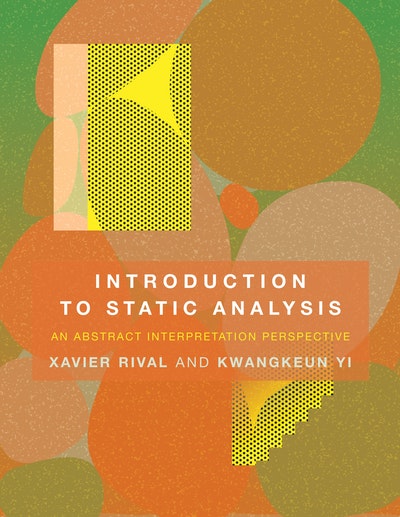A self-contained introduction to abstract interpretation–based static analysis, an essential resource for students, developers, and users.
Static program analysis, or static analysis, aims to discover semantic properties of programs without running them. It plays an important role in all phases of development, including verification of specifications and programs, the synthesis of optimized code, and the refactoring and maintenance of software applications. This book offers a self-contained introduction to static analysis, covering the basics of both theoretical foundations and practical considerations in the use of static analysis tools. By offering a quick and comprehensive introduction for nonspecialists, the book fills a notable gap in the literature, which until now has consisted largely of scientific articles on advanced topics.
The text covers the mathematical foundations of static analysis, including semantics, semantic abstraction, and computation of program invariants; more advanced notions and techniques, including techniques for enhancing the cost-accuracy balance of analysis and abstractions for advanced programming features and answering a wide range of semantic questions; and techniques for implementing and using static analysis tools. It begins with background information and an intuitive and informal introduction to the main static analysis principles and techniques. It then formalizes the scientific foundations of program analysis techniques, considers practical aspects of implementation, and presents more advanced applications. The book can be used as a textbook in advanced undergraduate and graduate courses in static analysis and program verification, and as a reference for users, developers, and experts.
